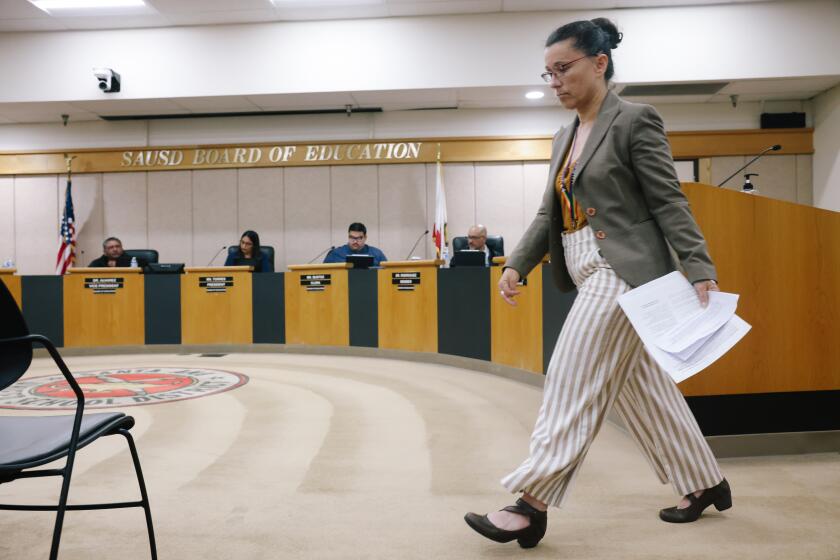To make learning Chinese fun for kids, an Irvine couple started a school, composed songs, formed an orchestra
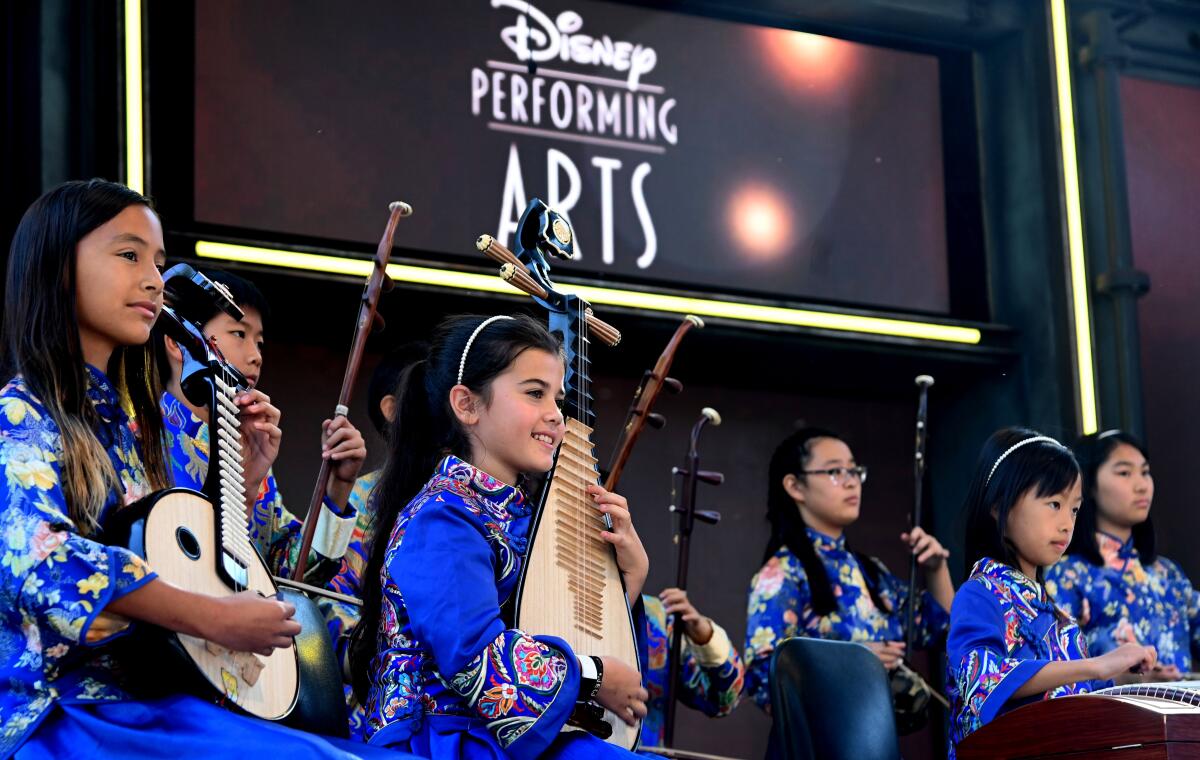
- Share via
When I first heard that Irvine’s A Little Dynasty Chinese School (where my daughter is a student) has a traditional Chinese children’s orchestra, I was surprised.
I grew up in San Jose, where there were sizable Chinese and Taiwanese populations, and as kids, many of us took piano lessons or learned how to play other Western instruments.
But I didn’t know anyone who played a traditional Chinese instrument, other than one of my parents’ friends, a guzheng player from China.
George Shaw, an L.A.-based composer who grew up in a large Taiwanese American community in Houston, was also unaware of many opportunities to learn Chinese instruments as a kid, let alone join a children’s orchestra. He didn’t learn how to play the bawu and hulusi until adulthood, wanting to expand his skillset as a professional musician.
“It makes sense that it’d happen at a Chinese school though,” Shaw says.
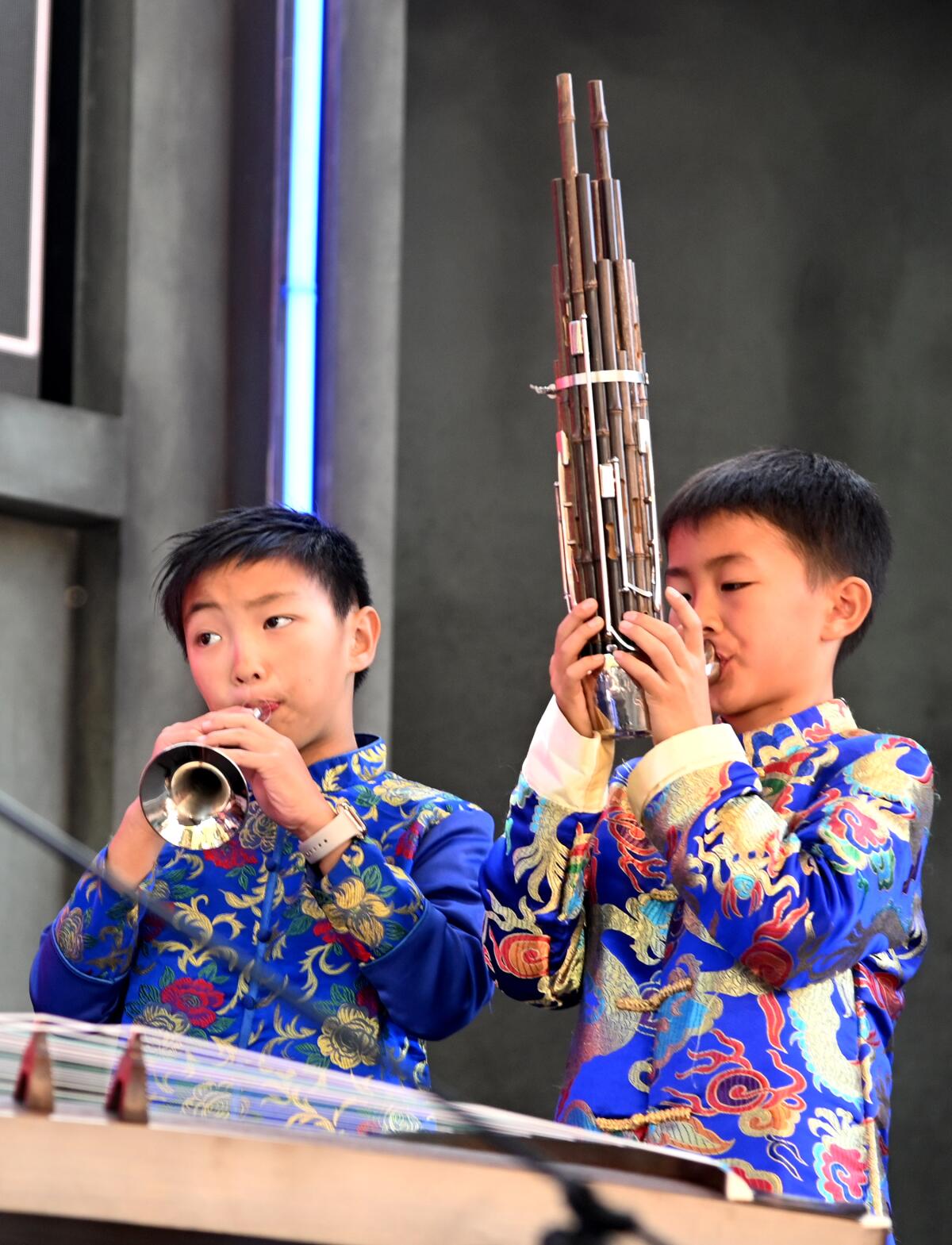
For many children of Chinese and Taiwanese American immigrants, Saturday morning is for Chinese school.
The joke is that everyone hates it.
You imagine your other friends are sleeping in or watching Saturday morning cartoons. Your parents tell you that you’ll regret it if you don’t become fluent in the language, but you don’t listen.
And then you do regret it. I did, especially when I had kids. And when people asked if I planned to make my kids go to Chinese school, I’d say, “100% yes.”
I did not spend a lot of time thinking about whether my kids were going to like Chinese school. But Charles and Angie Liu, founders of A Little Dynasty, did.
“I didn’t find it to be a very productive experience,” says Charles, who emigrated from Taiwan to the U.S. when he was 5 and attended Chinese school in Cerritos.
“I was thinking, ‘why is learning Chinese so hard for kids growing up here?’ ” says Angie, who was born and raised in Taiwan. “Why does going to Chinese school [feel like] suffering? Why can’t Chinese school be fun?”
In 2010, they decided to start their own Chinese preschool for kids their daughter’s age. They created their own series of books with English translations, with the goal of making their lessons more accessible to non-Chinese families.
At the time, Charles worked as a bankruptcy lawyer, while Angie was a computer systems analyst at a bank. A Little Dynasty was only ever meant to be a side gig. But each year, the other parents asked them to continue another year.
Now open from Mondays to Saturdays, with about 700 students, the school offers daytime classes for younger kids and after-school programs up to the level of the inaugural class, which includes their daughter, now 13.
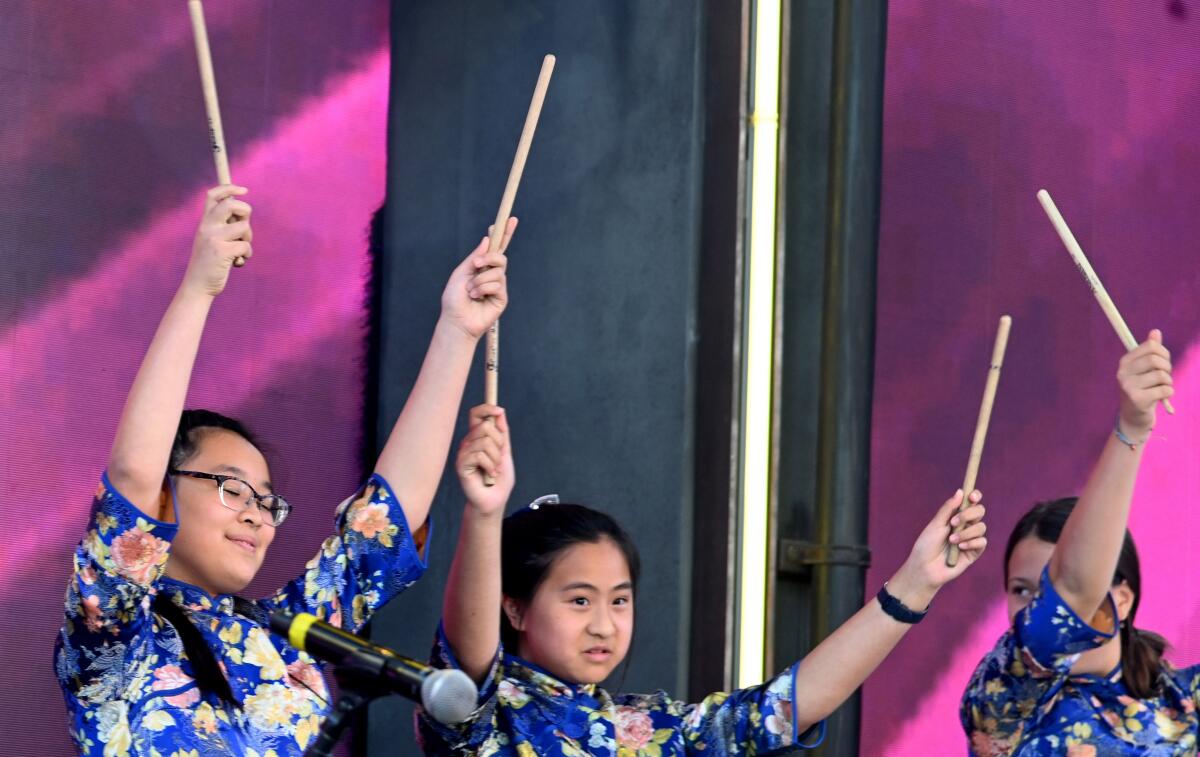
“The whole class is singing, dancing, playing,” says Angie.
“Instead of having students sit in their seats and memorize, we’re going to go bake a cake and speak Chinese while doing it,” says Charles. “We’re going to launch a rocket and speak Chinese while doing it.”
Soon, Angie started writing songs for the kids to sing.
Charles says that before then, he had no idea his wife could compose music.
“Suddenly, it’s like I have Elton John in our living room,” he says.
With the help of a producer in Taiwan, Angie has recorded multiple CDs, including original songs about Chinese holidays, night market shopping and a tribute to mothers, inspired by hers.
She and Charles collaborated on one of their school’s signature songs, “My Name is Boo Boo,” a hip-hop-style nod to the school mascot, Boo Boo the water buffalo.
When asked if she previously had any desire to pursue music, Angie is quick to say no.
“It’s all about the kids,” she says.
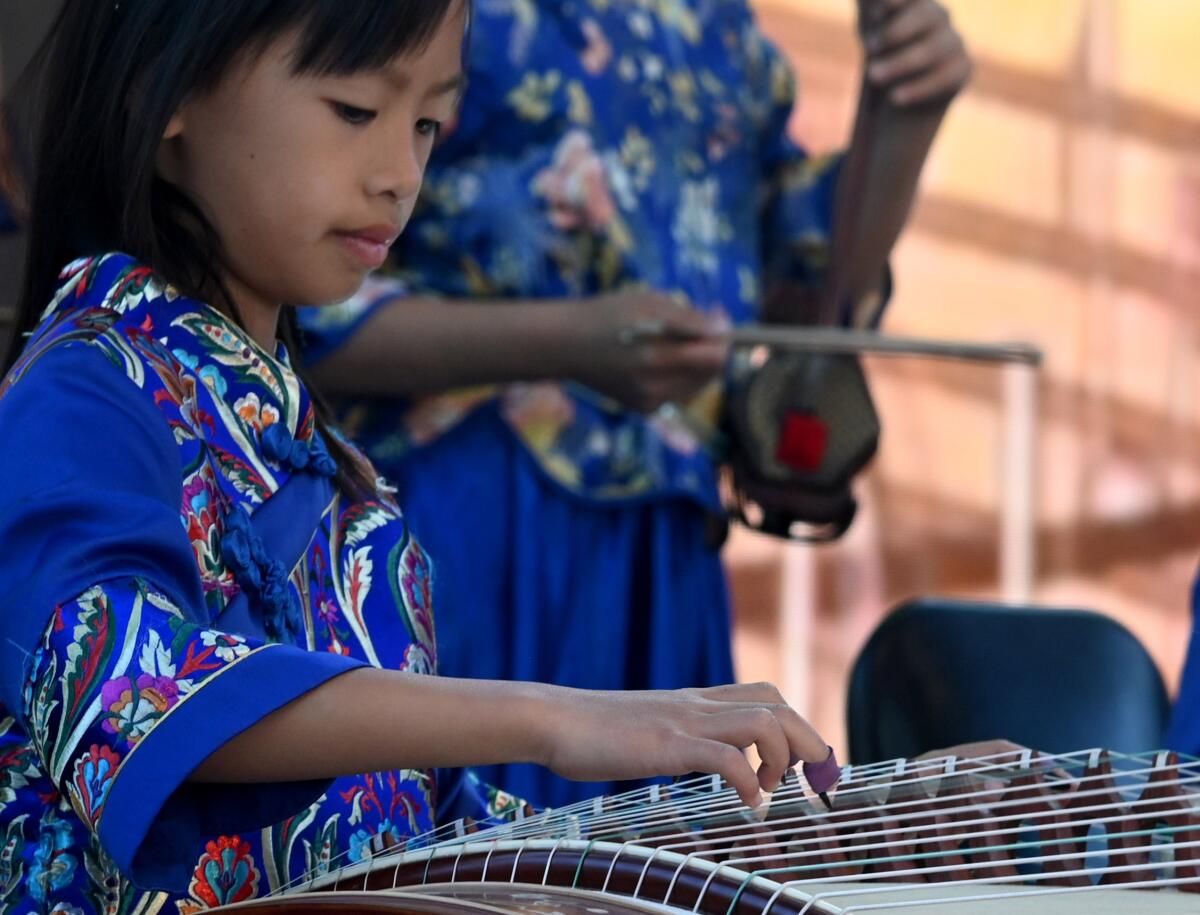
In 2013, they learned one of their language teachers was a pipa player who dabbled in erhu and guzheng.
To the Lius, it was just another opportunity for the students to do something fun in class and speak Mandarin while doing it, but the kids (and their parents) wanted more.
They invited professional instructors to teach private lessons, and once they had enough students, they started a Chinese children’s orchestra.
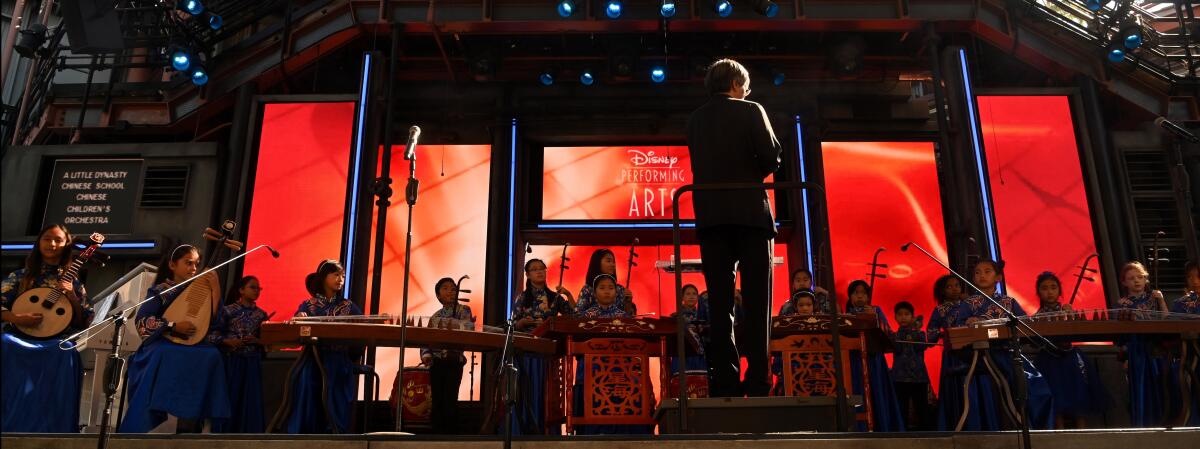
They hired Yunhe Liang, who studied at Beijing’s prestigious Central Conservatory of Music and performed the erhu music for Shanghai Disneyland’s theme music, as the orchestra’s music director.
For each show, Liang arranges the music for each instrument, while taking into account the skill level of each student. If the regular way of playing a song is too complicated, he’ll simplify it for the individual musicians.
“The kids absolutely love him,” Charles says of the 40 students in their weekly orchestra class. “When we go perform at Disneyland, they’ll always grab him and drag him onto the roller coasters.”
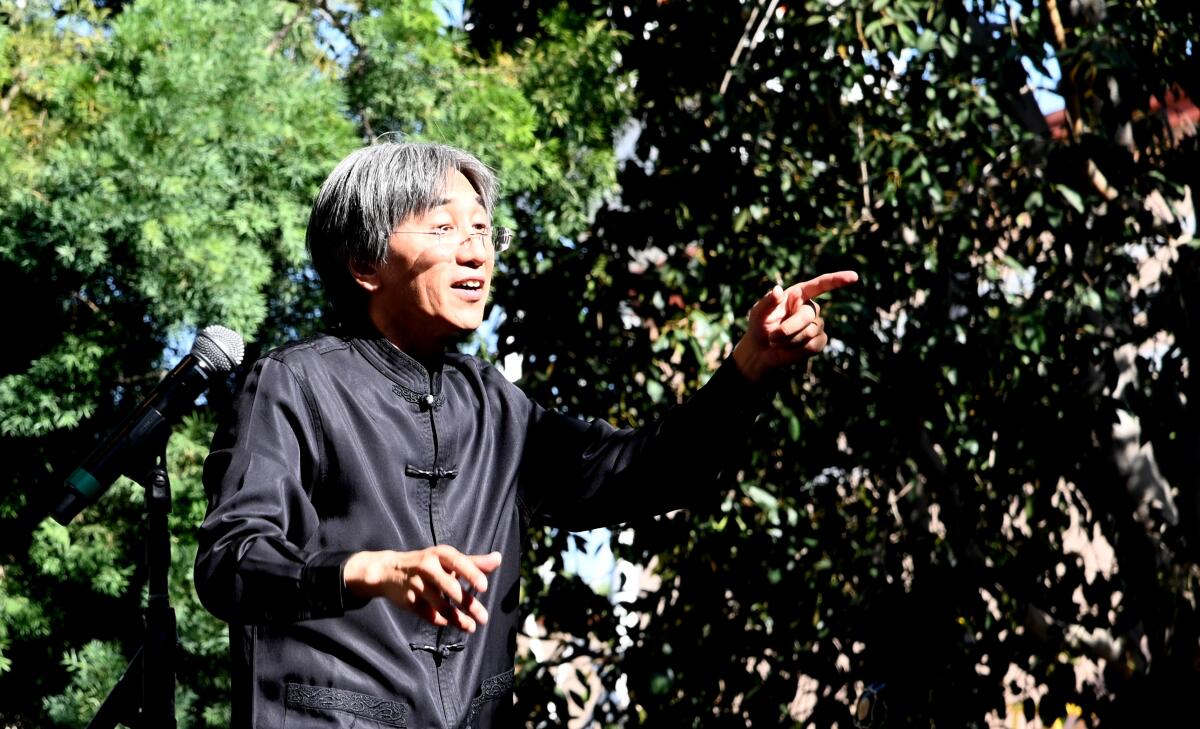
While full Chinese orchestras made up entirely of kids are still less common in the U.S., there are more opportunities now to learn the instruments, even as adults.
There are Chinese instrument ensembles at UCLA and Pasadena City College; orchestras like String and Bamboo Music in Walnut and the South Coast Chinese Orchestra at Irvine Chinese School; and a Galaxy Youth Art Performing Group in Tustin.
Mary Zhao, a Beijing-born, Fullerton-based guzheng player who started the American Gu Zheng Institute in 2011, has been teaching the instrument in Southern California for decades.
She says her students enjoy getting in touch with Chinese culture and impressing their peers at talent shows.
“It’s different than learning piano,” she says. “It’s special.”
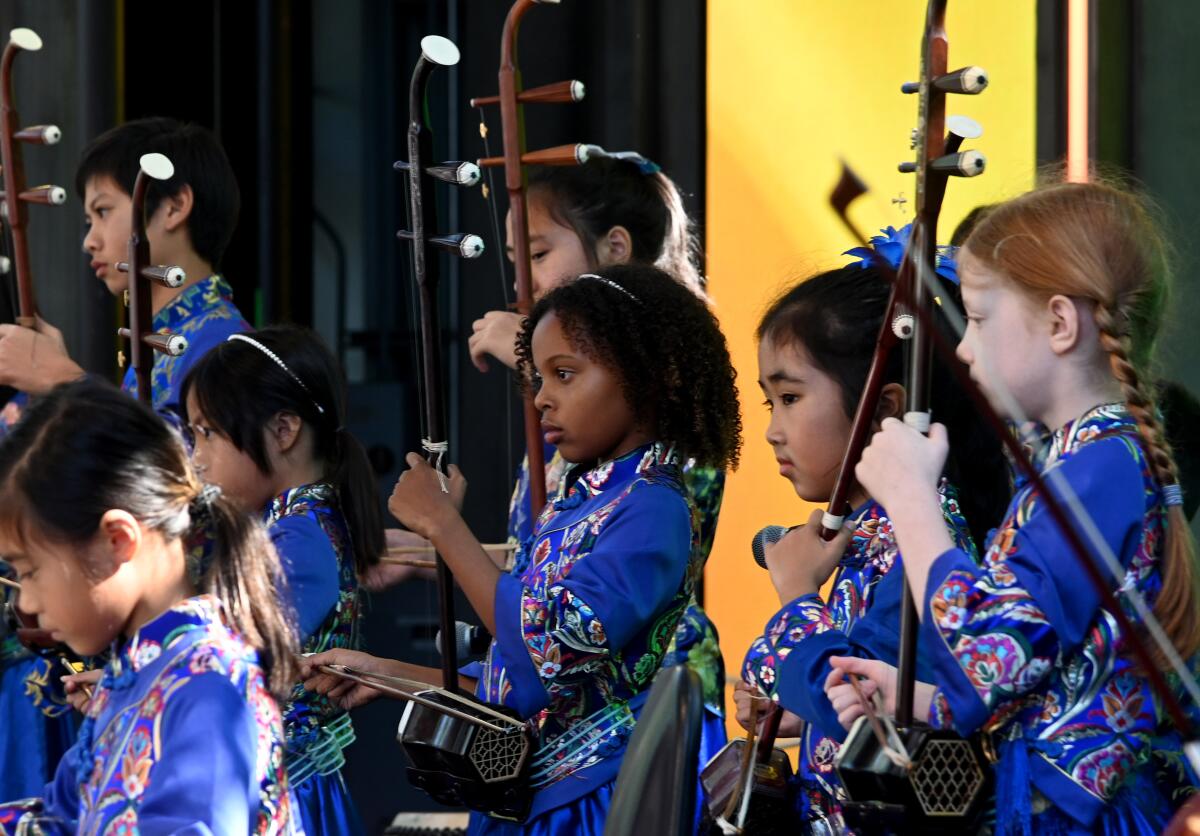
Shaw agrees. He first composed an album, “Legendary Warriors,” using Chinese instruments over a decade ago, and he’s currently working on follow-up. He says his ability to compose with both Chinese and Western instruments is a way to distinguish himself as a musician.
Meanwhile, A Little Dynasty Children’s Orchestra is doing its part to spread Chinese culture, performing at Disneyland, Universal Studios, the Huntington Library, Knott’s Berry Farm, South Coast Plaza and other venues. They have a full schedule ahead as Lunar New Year approaches.
“Whenever I listen to the orchestra, I’m genuinely flabbergasted by how good these young kids are,” says Charles. “We’re not a music school where you come here and just learn to play instrument ... but our kids really loved it and they got better and better.”
For information, visit chinesechildrensorchestra.com.
All the latest on Orange County from Orange County.
Get our free TimesOC newsletter.
You may occasionally receive promotional content from the Daily Pilot.

